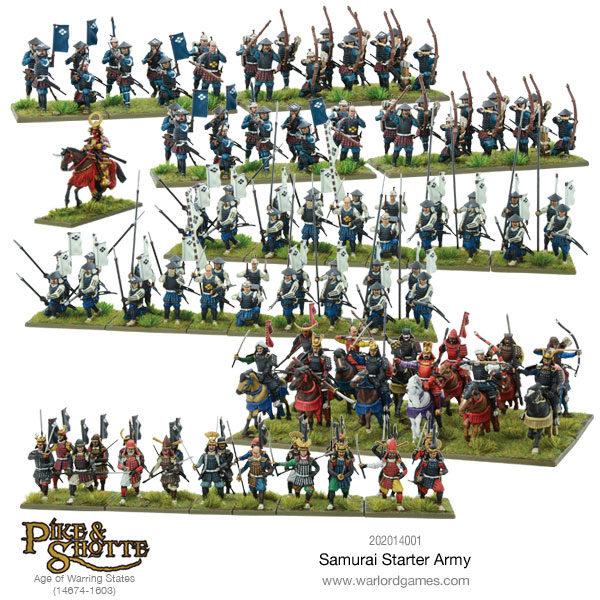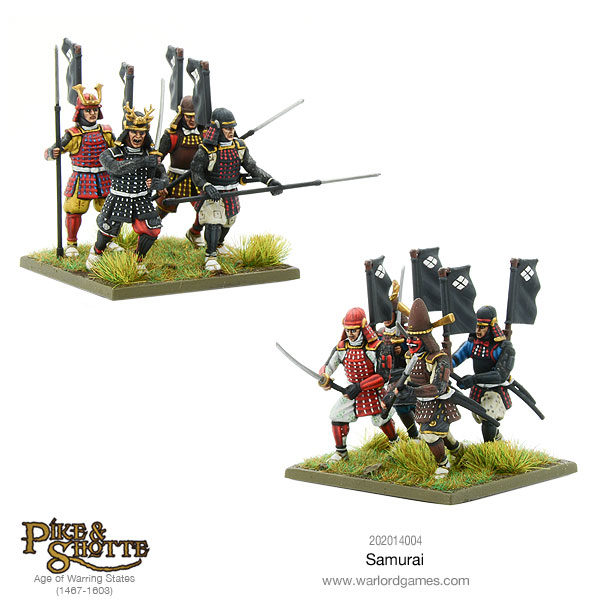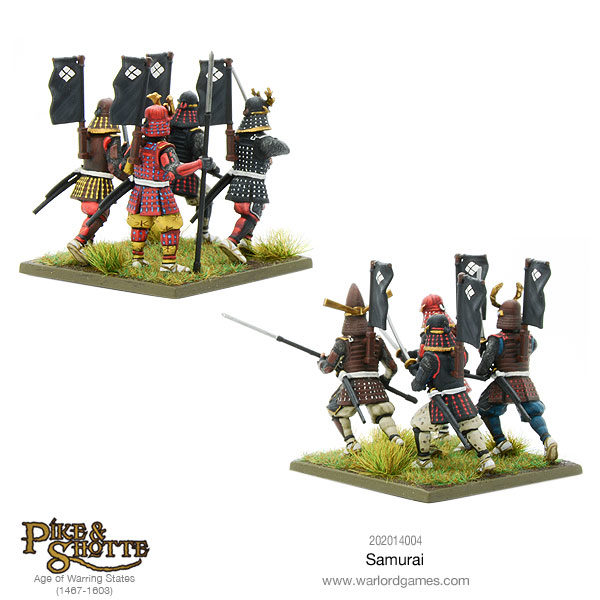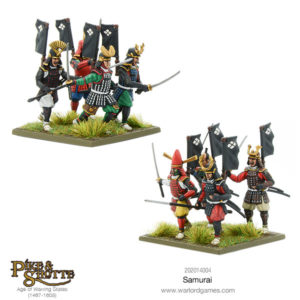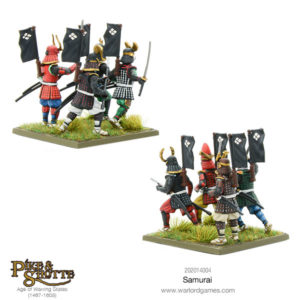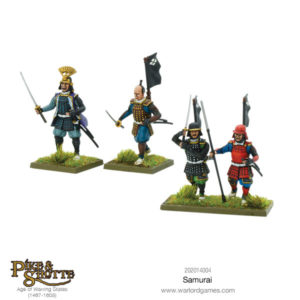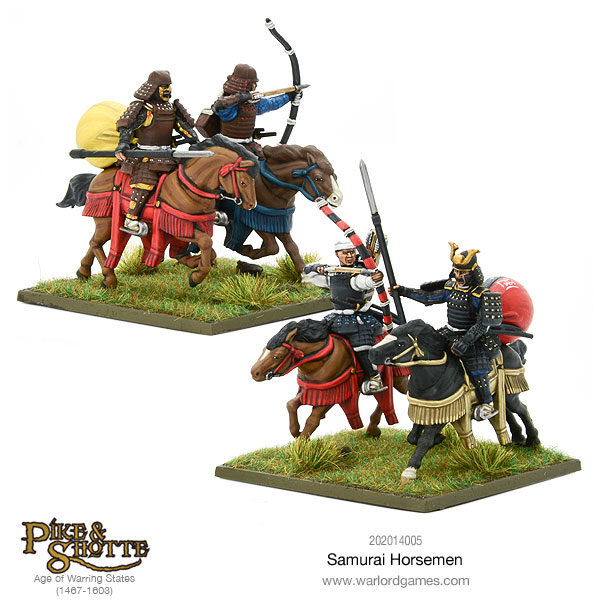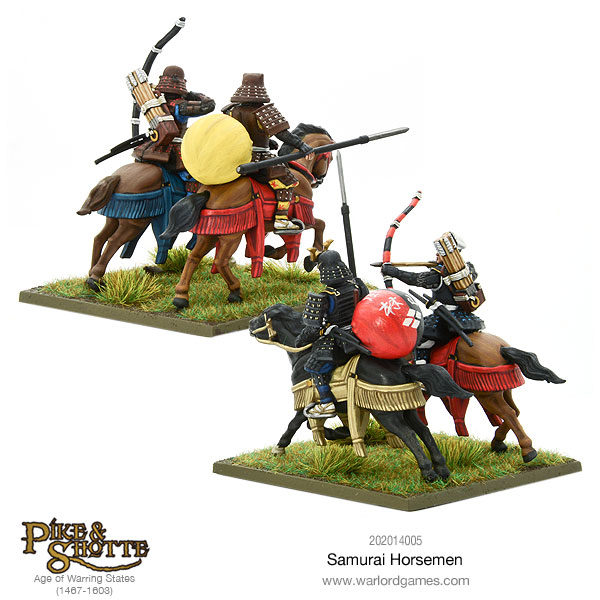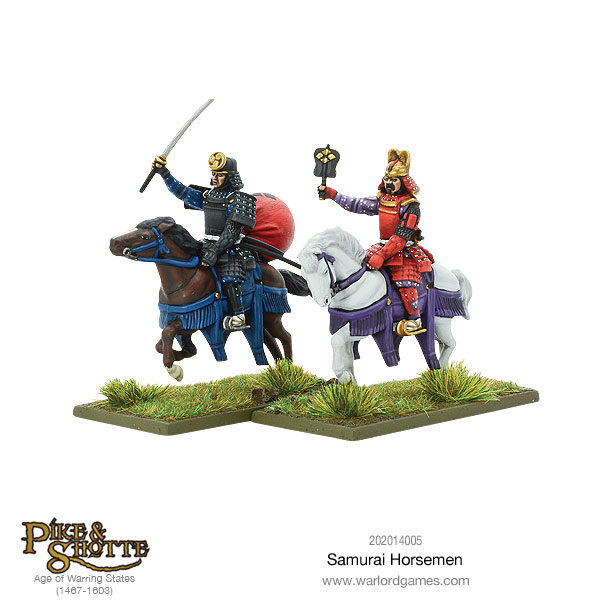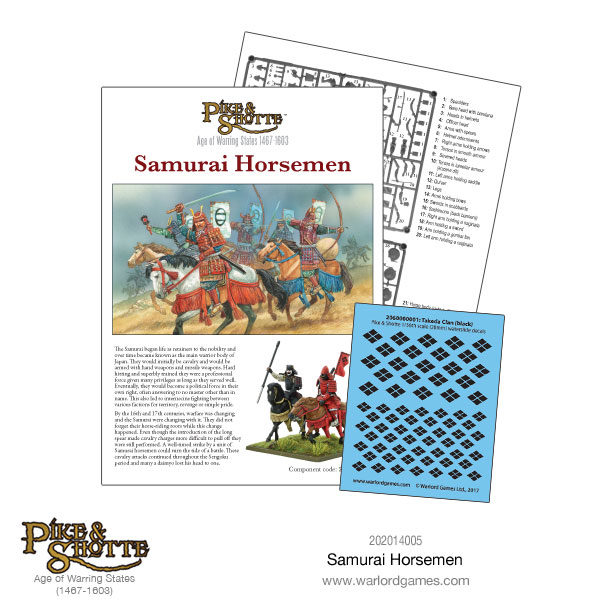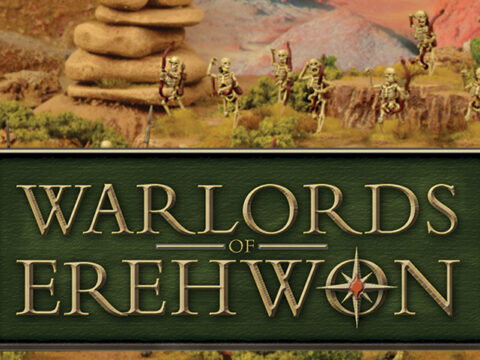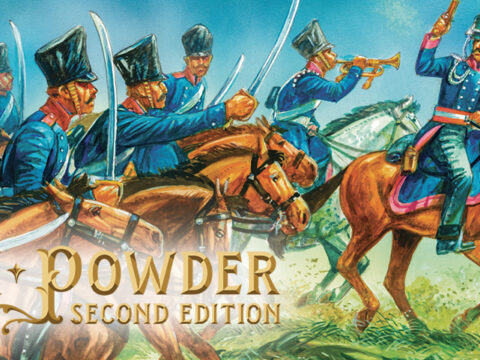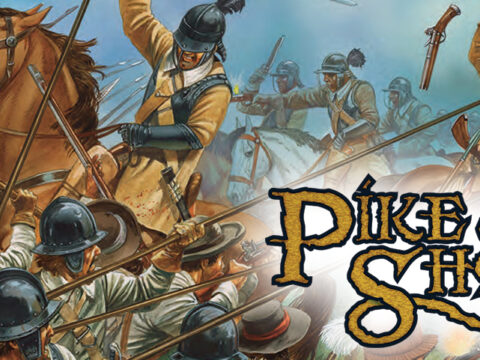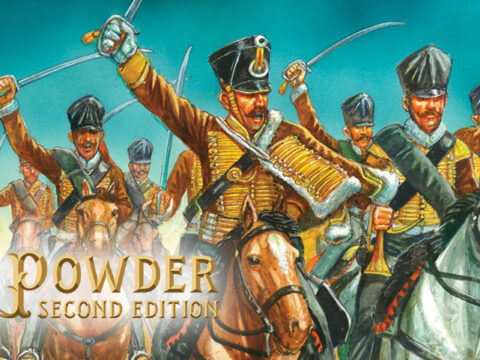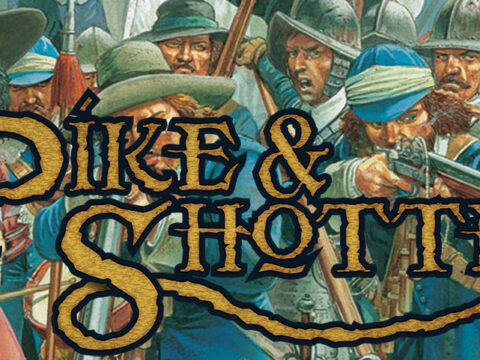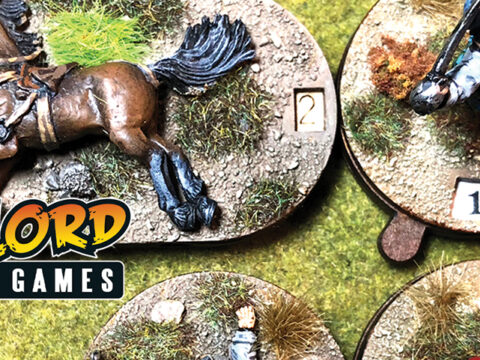The ancient code of the samurai reverberates throughout the battlefield as clan rises against clan in feudal Japan. The plastic Samurai and Samurai Horsemen are now available for Pike & Shotte!
Samurai
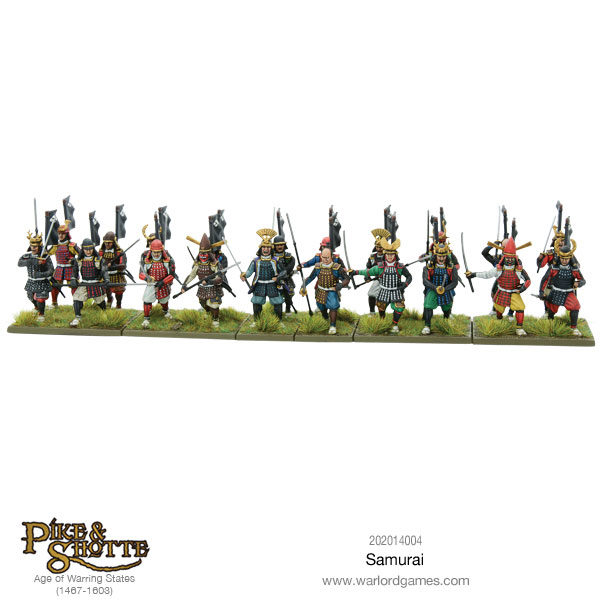
The Samurai is an almost mythical warrior caste of Japanese history. Their most famous exploits occurred during the Sengoku period between 1467 and 1603. With the Emperor and the Shogun unable to control the many Daimyos, there was near constant fighting between the various factions. In these times the Samurai code (Bushido) became more defined and standards of fighting improved. Even the introduction of the musket in 1543 was seen as an opportunity rather than a threat.
This product contains:
- 20 plastic foot Samurai
- Decal sheet with Takeda clan markings
- Assembly leaflet
- Plastic bases
Samurai would train with many weapons and today are most associated with the katana. This was only one part of their arsenal; yari (spear), yumi (bow) and no-dachi (greatsword) were often used as well.
Each Samurai would be a master at one weapon or more as well as expected to follow an increasingly rigid moral code. Able to fight on their own or in coordinated groups they are the best fighters at a Daimyo’s disposal.
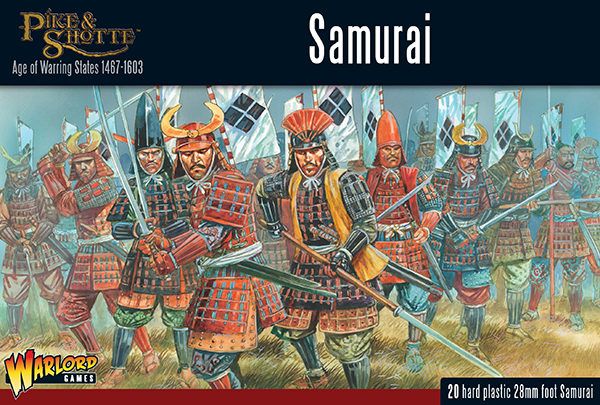
Samurai Horsemen
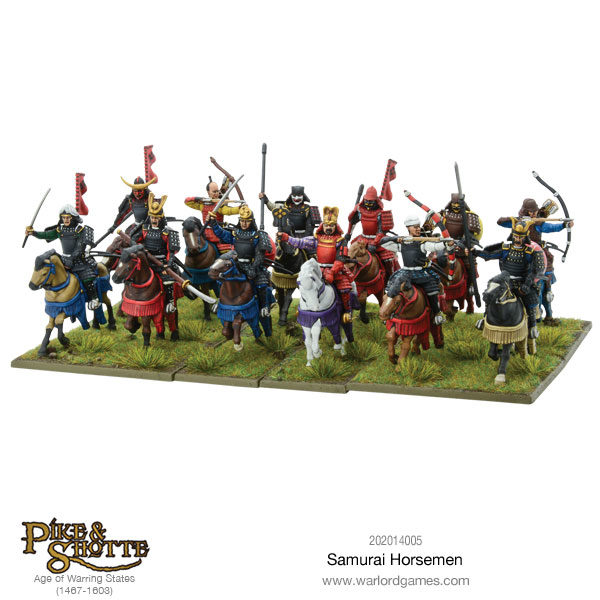
The Samurai began life as retainers to the nobility and over time became known as the main warrior body of Japan. Initially, they were cavalry, armed with hand weapons and missile weapons. Hard hitting and superbly trained they were a professional force given many privileges as long as they served well.
This product contains:
- 12 plastic Samurai horsemen
- Decal sheet with Takeda clan markings
- Assembly leaflet
- Plastic bases
Eventually, they would become a political force in their own right, often answering to no master other than in name. This also led to internecine fighting between various factions for territory, revenge or simple pride.
By the 16th and 17th centuries, warfare was changing and the Samurai were changing with it. They did not forget their horse-riding roots while this change happened. Even though the introduction of the long spear made cavalry charges more difficult to pull off they were still performed. A well-timed strike by a unit of Samurai horsemen could turn the tide of a battle. These cavalry attacks continued throughout the Sengoku period and many a daimyo lost his head to one.
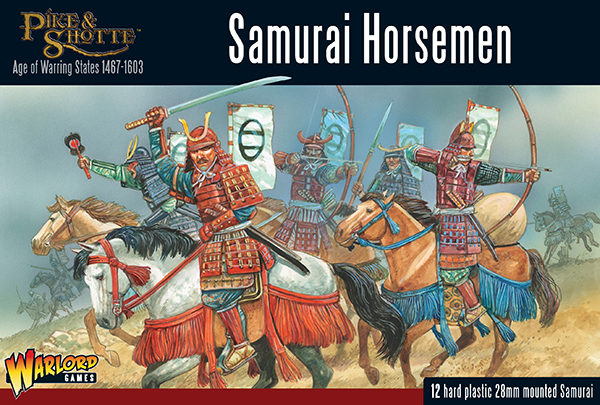
Start your Pike & Shotte Journey!
